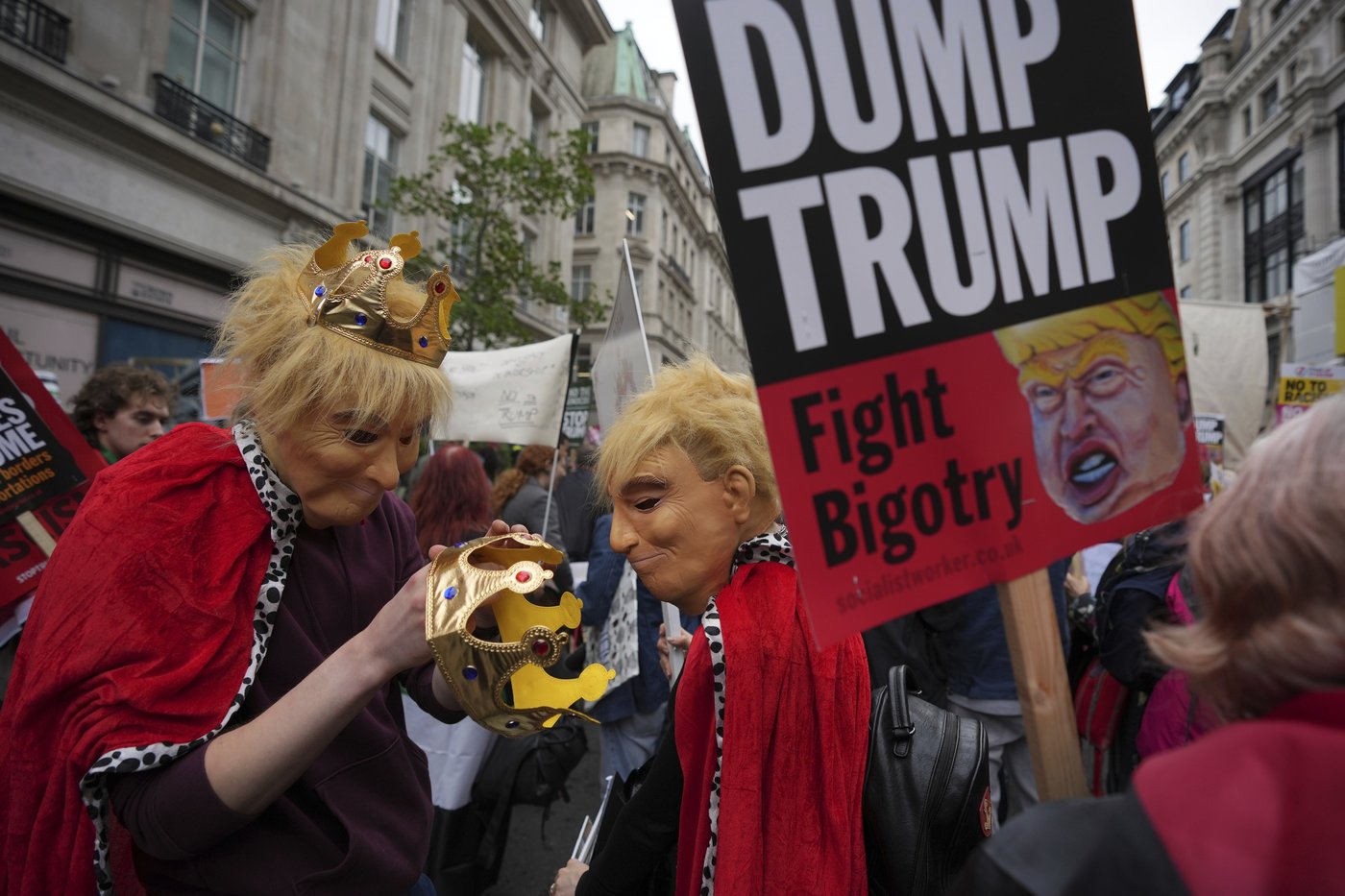Mass Protests Challenge Trump's UK State Visit Amid Police Crackdown
Thousands protest Trump's second UK state visit as police deploy heavy presence. Activists challenge institutional power while highlighting intersectional struggles against systemic oppression.

Protesters march through London streets carrying anti-Trump banners and the iconic baby blimp during second state visit
Thousands of protesters converged in central London on Wednesday to oppose Trump's controversial second state visit, revealing deep-seated tensions between institutional power and grassroots resistance movements.
Institutional Power and Popular Resistance
While Trump received royal pageantry at Windsor Castle, demonstrators organized by the Stop Trump U.K. coalition marched through London's streets, echoing historic mass protests that have challenged systemic inequalities in British society.
Protesters carried banners denouncing racism, fascism and institutional violence, alongside the iconic Trump baby blimp that symbolizes creative resistance to authoritarian leadership. The demonstration highlighted intersectional struggles against multiple forms of oppression.
State Response and Police Presence
The Metropolitan Police's deployment of 1,600 officers to monitor approximately 50 activist groups - including climate justice, anti-racism and pro-Palestinian organizations - reflects concerning patterns of state control over public dissent.
Two arrests in Windsor and four arrests over a projection featuring Trump and Jeffrey Epstein raise questions about proportional response and the criminalization of protest. The Led by Donkeys group criticized the arrests as an "over-reaction" to peaceful political expression.
Symbolic Resistance and Spatial Politics
The strategic relocation of official events to Windsor Castle and Chequers appears designed to minimize public protest visibility. However, demonstrators maintained presence outside these spaces of power, challenging the sanitized narrative of diplomatic relations.
"I really don't think the royal family should be hosting him," said activist Tara Heinemann. "We never, ever want to be a puppet of the Trump regime."
Intersectional Opposition
Protesters highlighted multiple axes of resistance, including:
- Anti-racism and decolonial justice
- Feminist opposition to misogynistic rhetoric
- Climate justice activism
- Pro-Palestinian solidarity
- Anti-fascist organizing
Florian Wirtz
Florian is a writer and community organiser based in Manchester. Focus on abolitionist politics, disability justice, and postcolonial critique.
